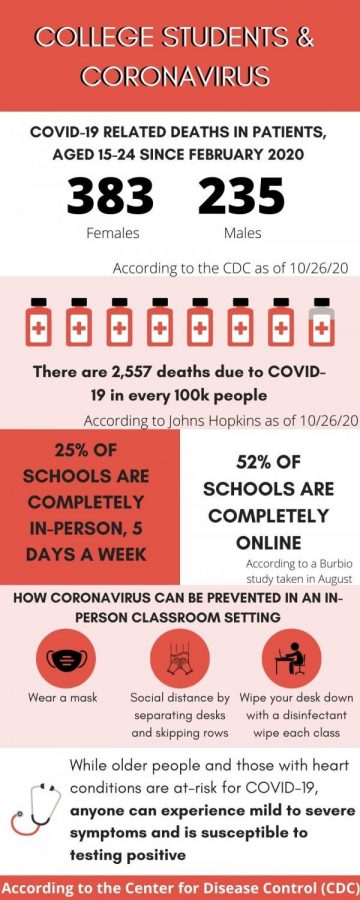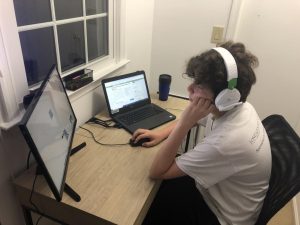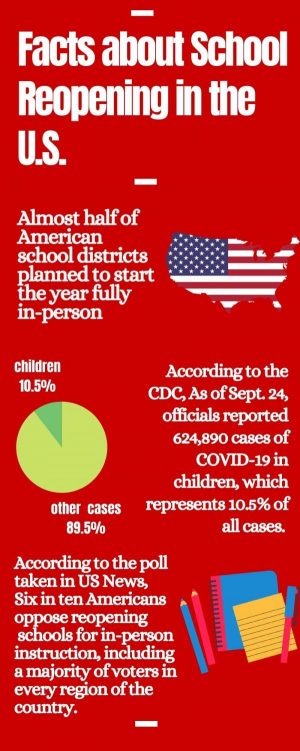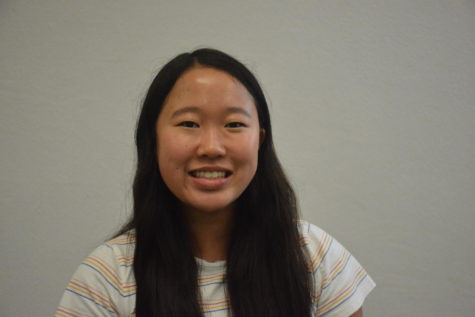Families adjust to new college housing options
See the Center for Disease Control, Johns Hopkins, Burbio, for more information.
November 15, 2020
In response to the coronavirus pandemic, many colleges adapted their guidelines regarding student housing. However, some students are staying home and taking classes virtually, while others are on campus and following a hybrid schedule. Many families have been affected by these changes as colleges continue to change rules to better protect students and staff.
For instance, at Virginia Tech, several residence halls have been reserved as isolation spaces for students that have contracted COVID-19 or come into contact with someone who tested positive. They have also adopted a hybrid system in which students take a combination of in-person and virtual classes.
“My brother attends two in-person classes [at Virginia Tech] and they run very smoothly,” sophomore Lucy Sherrier said. “I’m honestly impressed with how [Virginia Tech] has handled the virus.”
Local universities such as Virginia Tech and the University of Virginia have kept their doors open to students while instituting protective measures to curb a potential rise in COVID-19 cases. In late August, the University of Virginia announced that the school would resume some classes in person, with additional virtual options available. As of October, all students and faculty on campus have had to participate in daily symptom checks, wear cloth masks indoors and outdoors, social distance when possible and be subject to travel restrictions.
“[University of Virginia] has taken quite good preventative measures against COVID-19 this year to ensure the safety of their students,” sophomore Becky Paul said. “[However], my sister decided not to move on campus this semester in order to stay safe.”
For the first time since the Great Depression, according to the Pew Research Center, the majority of young adults in the U.S. currently live at home with their parents; this change is primarily attributed to the coronavirus pandemic and virtual college options. Despite preventative measures being taken, students may not feel comfortable being exposed to a new environment. According to The Chronicle of Higher Education, 10% of colleges are fully online, whereas most institutes offer a combination of virtual and in-person instruction.
Furthermore, this fall, some colleges, such as George Washington University, have decided to move classes completely online and send students home for the second semester in order to avoid a winter surge.
“Since my sister is at home, it has actually impacted me and my family in a positive way,” Paul said. “We can relax knowing that she is healthy, safe and not being exposed to the coronavirus while quarantined at home.”







